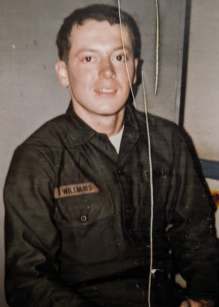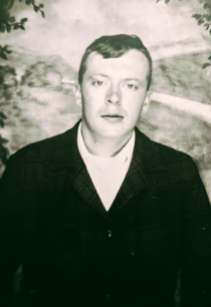
This was written on October 23, 2022, the third anniversary of my father’s death by suicide. If you are in crisis, please call or text 988 in the US. Additional crisis numbers are available at https://twloha.com/find-help/24-hour-helplines/ . Please stay.
My younger daughter is a psychology major, and one of the things she often has to study is suicide. Sometimes, she asks to skip the lesson; others, she paints her nails while the professor Zooms along; and then, there are times that grace is with her and she is able to take it all in, to learn what she has lived.
Last week, she looked at me sideways with the same honest eyes of her toddlerhood and said, “You know, this suicide is the worst, most traumatic possible. It has set us up for life.” We know too much about my father’s death; there is too much about my father’s death–these are irrefutable facts.
And so, we are eating an elephant a bite at a time, emptying the ocean by the thimbleful–coping with the wide swaths suicide creates, the huge spaces between family members in different phases of recovery; the spaces in our thoughts–caverns where we try not to go, dark spaces where memories–both happy and sad–are stored for now; the fields of words we cannot say.
A remarkable thing about suicide survivors–the odd term for the people a successful suicide leaves behind–is the pain that we carry. It is sometimes all-engulfing–we are cloaked in it, choked by it– it is obvious in our wrenched eyes, our sallow skin, our absent-minded speech. But there are other days when it can almost fit into our pocketbooks; days where we can tuck it away and make you forget our dead fathers and mothers and children.
There are days where we can balance our anger and dismay–the books say survivors are heartbroken because our loved ones died. And outraged because they were murdered. We careen between the two emotions–our hearts frayed and raging.
It is so painful.
There is so much empty space.
Year two is the “hard” year according to those same books. Some things help: yoga, therapy, music, prayer, massage. But helping is different from healing, and helped does not mean whole.
I go to therapy. One thing Dad’s death did was give me a free pass to share that truth. Trauma is distilling, perspective-giving, and in that sense, it is also emboldening. Today, I was entirely comfortable saying to the man changing my oil, “I need a chair to sit on the sidewalk to attend a Zoom meeting.”
I was comfortable saying, “I have to meet with my therapist.” Saying, “This is what I need right now.”
I was comfortable needing.
And that’s the crux of the problem, isn’t it? That’s the point of the overload: we need things. And we are uncomfortable asking for them. We don’t want to inconvenience anyone. We don’t want to be a bother. It is easier for everyone for us to be a quiet and broken wheel in the corner of the garage than to dare to squeak.
I am so mad at this truth.
It is, I think, especially Southern and especially Christian.

For years, my daughters went to a wonderful summer camp where they learned: I am third. (God, others, myself.)
For decades, I lived a life where I was third. (There were days when I felt like I was 125th–after God, my family, and my 120 students.)
But then my granddaughter died, and I needed trees and silence.
Then my dad died, and I needed compassion and room. And trees and silence.
And the needs were undeniable. No one could argue that I needed to be out and about. To do more at church or school.
Everyone could see that I needed to heal.
All of my needs were obvious– My psyche did not have hairline fractures; it had cannon blasts.
Three years ago today, on an October morning, my father died by suicide. Ten months ago, my husband died of complications from a stroke caused by cat scratch fever. For 36 months, I have thought about these men whom I loved, these funny, acerbic men whom life gave few breaks.
That is my summer revelation: I was raised by a man who didn’t get to do much that he wanted to. I married a man who also did not get to do what he wanted to.

My dad was an incredible artist. He could draw anything– a presidential caricature, Tom and Jerry, a hunkering down hairy dog. As a boy, he drew cartoons for the family newspaper. In high school, he won a national art prize; I believe a collegiate art scholarship was included.
But drawing was effeminate. Those are his words, not mine. He was a man in the Deep South in the 1960s, and men didn’t draw. Turning their masculine backs on joy, they joined the family businesses. They did what was expected.
And Greg was quite the quarterback as a youngster. He was good, and he loved football, but his parents divorced, and he had to give it up in the name of visitation. On some Sunday afternoons as he watched others play the game he loved, he would say, “I was a good quarterback. I was tall enough.” I heard the wistfulness. I heard the disappointment.
Greg sacrificed his dream of vet school, too. He couldn’t get past organic chemistry. On long car drives–the kind where, when you’re five hours in, conversations get honest–he would say that he should have tried harder. Stuck it out. He would say that he would have been a good vet.
Greg talked of his disappointments without anger. Dad turned all of his into jokes, calling himself “Fate’s Whipping Boy” and powering on.
That was their model: walking the expected road. Doing what was right, what was convenient for others. Quelling and staunching and stamping down.
And arriving at life’s end carrying bags they were required to shoulder, while those they wanted, but dropped were never–not once–forgotten







 Me, to Abby: “How would you start a blog about hope?”
Me, to Abby: “How would you start a blog about hope?” After I wrote “hope” on the index card and my friends and I chuckled, I crossed it out, and I started thinking–why was that my instinct? Why not write “my father’s death” or “our financial and marital struggles” or “the doctor’s mistakes”? Why not start fresh in one of those areas?
After I wrote “hope” on the index card and my friends and I chuckled, I crossed it out, and I started thinking–why was that my instinct? Why not write “my father’s death” or “our financial and marital struggles” or “the doctor’s mistakes”? Why not start fresh in one of those areas?




 In my carport and my sitting room, there are Rubbermaid containers filled with memorabilia–forty-year-old amusement park photos, elementary school report cards, “World’s Greatest Dad” trophies, letters from summer camp, tiny plastic Cracker Jack toys, greeting cards that all say, over and over and over again, “We love you. We appreciate you. You are wonderful.” And I look at that–all that written attestation, all that Crayola-ed love, and I think, “It wasn’t enough.”
In my carport and my sitting room, there are Rubbermaid containers filled with memorabilia–forty-year-old amusement park photos, elementary school report cards, “World’s Greatest Dad” trophies, letters from summer camp, tiny plastic Cracker Jack toys, greeting cards that all say, over and over and over again, “We love you. We appreciate you. You are wonderful.” And I look at that–all that written attestation, all that Crayola-ed love, and I think, “It wasn’t enough.” Six weeks ago, I joked with a friend that I wanted to write a blog on 25 ways to survive a bad day. We agreed that it was “too morbid” for South Georgia–small towns being what they are, no one should ever admit that, sometimes, simply enduring is difficult. Now, of course, with my father’s death by suicide, people can think what they will.
Six weeks ago, I joked with a friend that I wanted to write a blog on 25 ways to survive a bad day. We agreed that it was “too morbid” for South Georgia–small towns being what they are, no one should ever admit that, sometimes, simply enduring is difficult. Now, of course, with my father’s death by suicide, people can think what they will.
